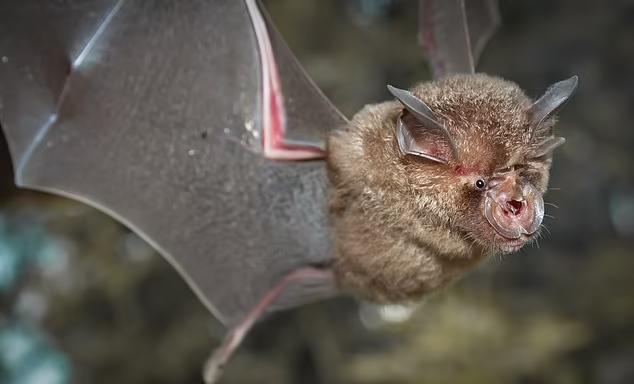While the global COVID-19 pandemic isn't over yet, scientists are already predicting the next global health crisis and saying it could be triggered by climate change. A new study suggests that warming forces animals to migrate to more densely populated areas, increasing the risk of the virus spreading to humans.
An international team of researchers led by scientists at Georgetown University in the United States described this link between climate change and the spread of the virus, and the results were published in the April 28 issue of nature. Researchers are beginning to understand how climate change will recombine the global mammalian virion, the total collection of viruses in and on the surface of mammals.

The researchers' findings suggest that as temperatures rise, mammals will be forced to migrate to more densely populated areas. On the go, these mammals will encounter other different categories of mammals for the first time, potentially sharing thousands of viruses. These recombinant viruses, including coronaviruses, are emerging in new areas and are at greater risk of spreading to humans.
By 2070, population centers in Africa, close to the equator, southern China, India and Southeast Asia, will overlap with predicted hotspots for cross-species virus transmission among wild animals, the researchers said.
The results were published In nature on April 28
"In fact, the risk we see in the wildlife trade is the closest analogy to the study aforementioned," said Dr. Colin Carlson, lead author of the study, "and we are concerned because putting unhealthy animals together in unnatural combinations creates opportunities for this gradual process — like how SARS spreads from bats to civets and then to humans." ”
Sam Scheiner, director of the National Science Foundation program who funded the research, said: "The COVID-19 pandemic, and the previous spread of SARS, Ebola and Zika, have shown how the spread of the virus from animals to humans has a huge impact. "This study suggests that animal activity and interactions caused by warming may increase the amount of viruses that spread between species."
Scientists warn that the process by which this animal spreads and recombines the virus will be a reality in nature almost everywhere in the changing climate. It is worth noting that rising temperatures will have an impact on bats. While the origin of the coronavirus (SARS-CoV-2) is unclear, some scientists believe the virus most likely originated in bat species.
Bats play a central role in the spread of the new virus, and the region is expected to be most affected as Southeast Asia is a hotspot for bat diversity. Dr Gregory Albery, co-author of the study, said: "This mechanism adds another layer to how climate change will threaten the health of humans and animals. ”
It's unclear exactly how the new viruses affect the species involved, but many of them are likely to translate into new security risks and exacerbate the emergence of new human plagues. The researchers suggest that the only way to mitigate the impact of climate change on the spread of the virus is to combine wildlife disease surveillance with real-time research on environmental changes.
"When a Brazilian tailless bat flies all the way to appalachia, we should put in the effort to understand what virus is coming with it," Dr. Carlson said, "and the only way we can prevent this process from leading to more spillovers and more epidemics is to detect these host jumps in real time." ”
He added that humanity is closer than ever to predicting and preventing the next pandemic, "which is a big step towards prediction – now we have to start working on solving the difficult points in the problem." ”
Nandu reporter Shi Minglei